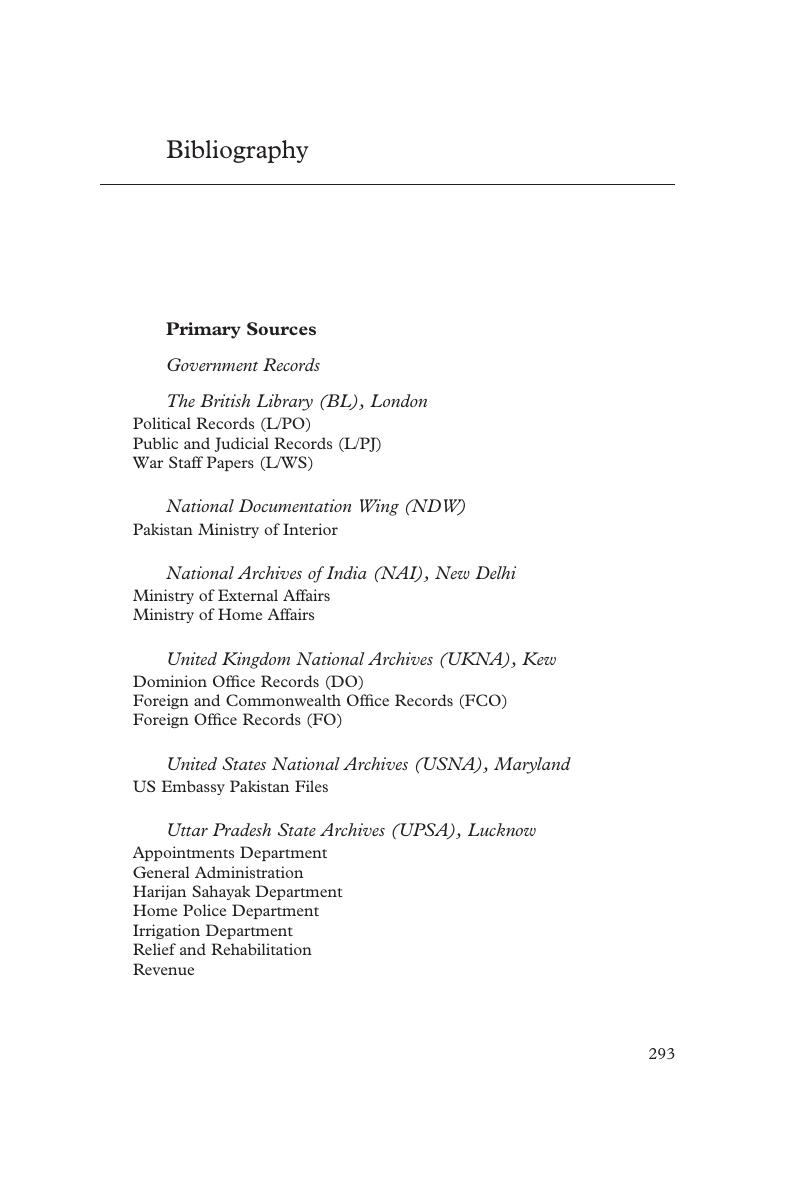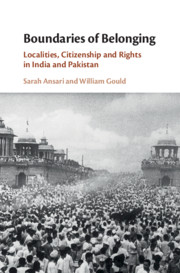Book contents
- Boundaries of Belonging
- Boundaries of Belonging
- Copyright page
- Epigraph
- Contents
- Figures
- Acknowledgements
- Abbreviations
- Maps
- Introduction
- 1 ‘Performing the State’ in Post-1947 India and Pakistan
- 2 People on the Move
- 3 Citizens and the City
- 4 New Constitutions, New Citizens
- 5 Women and Differentiated Citizenship in Postcolonial South Asia
- 6 ‘Hidden Citizens’ in 1940s and 1950s India and Pakistan
- Epilogue and Conclusion
- Glossary
- Bibliography
- Index
- References
Bibliography
Published online by Cambridge University Press: 17 October 2019
- Boundaries of Belonging
- Boundaries of Belonging
- Copyright page
- Epigraph
- Contents
- Figures
- Acknowledgements
- Abbreviations
- Maps
- Introduction
- 1 ‘Performing the State’ in Post-1947 India and Pakistan
- 2 People on the Move
- 3 Citizens and the City
- 4 New Constitutions, New Citizens
- 5 Women and Differentiated Citizenship in Postcolonial South Asia
- 6 ‘Hidden Citizens’ in 1940s and 1950s India and Pakistan
- Epilogue and Conclusion
- Glossary
- Bibliography
- Index
- References
Summary

- Type
- Chapter
- Information
- Boundaries of BelongingLocalities, Citizenship and Rights in India and Pakistan, pp. 293 - 307Publisher: Cambridge University PressPrint publication year: 2019



